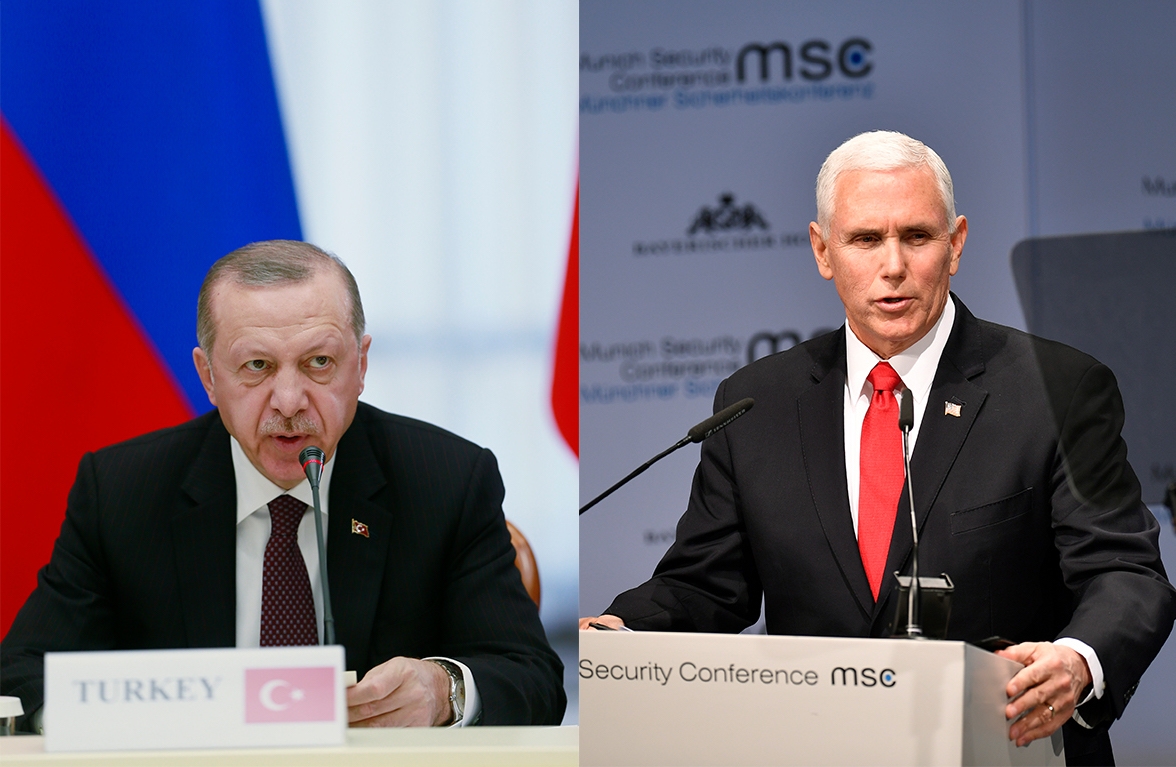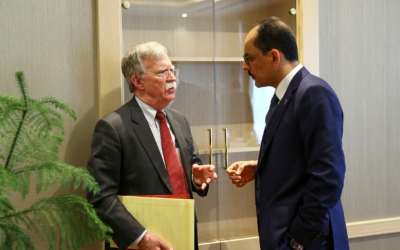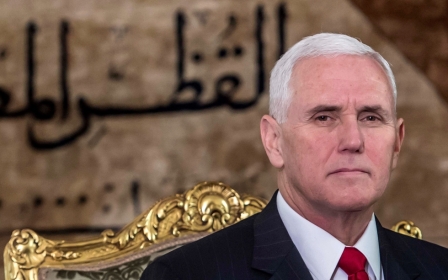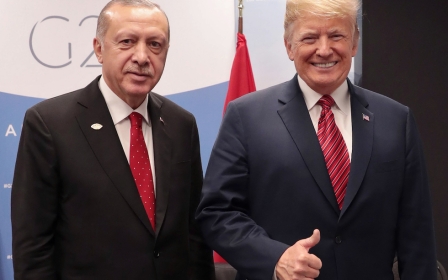EXCLUSIVE: Pence asks Erdogan to scrap Russian missiles in secret phone call

US Vice President Mike Pence made an abortive appeal to Turkish President Recep Tayyip Erdogan, asking him to renege on a missile deal with Russia in favour of an American one, Middle East Eye has learned.
In a telephone call last week, Pence asked Erdogan to cancel his country’s agreement with Moscow to purchase Russian S-400 air defence systems, which has heightened tensions between the two NATO allies.
Pence, a former member of US-Turkey Caucus at the US Congress, relayed President Donald Trump’s greetings to Erdogan and asked to drop the S-400 sale, according to two Turkish sources with knowledge of the call.
The request stems from the fact that Trump administration is mandated to sanction countries that conduct transactions with the Russian military industry, according to a law ratified by the US Congress in 2017, called CAATSA, or Countering America's Adversaries Through Sanctions Act.
Even though Turkey inked the deal with Moscow well before the purchase, US diplomats have said it is still sanctionable.
New MEE newsletter: Jerusalem Dispatch
Sign up to get the latest insights and analysis on Israel-Palestine, alongside Turkey Unpacked and other MEE newsletters
Pence, during the phone call with Erdogan, stressed that an alternative deal with Washington, which would see Turkey purchase Patriot missiles instead of the S-400, was still on the table, according to the sources.
Erdogan, in return, said that Ankara’s deal with Moscow was at a point of no return, and Patriots didn't meet with all three criteria Turkey needed: timely delivery, joint-production, and tech transfer.
Pence said Washington could expedite the delivery but couldn’t make a promise on other subjects, the sources said.
Turkish officials declined to comment on this report. US officials didn’t respond to a number of inquiries. Neither the Turkish presidency nor the White House National Security Council released readouts about the phone call.
Shopping around
Ankara has been seeking air defence systems ever since NATO pulled its Patriot missiles from Turkey in 2015.
Finding resistance in Congress to attempts to purchase its own Patriots, Turkey then turned to Russia.
That has left US officials at the State Department scrambling to find a solution to the S-400 issue . They have have been delaying sanctions since 2017 on the grounds that the S-400s still hadn’t been delivered to Turkey.
Once the air defence systems are delivered, the officials contend, Turkey could avoid sanctions by keeping them warehoused and deactivated.
But issues beyond the arms sanctions could jeopardise other US defence sales to Ankara.
'We asked western allies for the delivery of air defence systems, but the existing systems were withdrawn, let alone giving us new ones'
- Recep Tayyip Erdogan
The Pentagon and defence industry firms such as Lockheed Martin have expressed concerned that the S-400 radar could spy on the new generation US fighter jet, the F-35, which is jointly produced by a number of countries including Turkey.
Ankara is planning to replace its F-16 fleet in the near future with dozens of F-35s.
Ankara has sought to ease tensions, such as by promising Washington that Russian technicians would not set foot on Turkish soil, offering to create new, local software for the system, and saying it would not connect the S-400s to either a Russian network or a NATO one.
However, various sources in Washington previously told MEE that senior American officials found these offers insufficient.
Turkey is already in possession of two F-35s, which are currently grounded in the US for training purposes. Another two are due to be delivered next month.
Yet several pieces of US legislation have cast their delivery into doubt, and it is unclear if the F-35s in the US for training will be allowed to leave for Turkey this year.
In this context, the US offer to sell a $3.5bn Raytheon Co Patriot missile package, which it first floated in December, is important.
US officials set Ankara an informal deadline of 15 February to respond to the offer, according to US officials who spoke to media.
A Reuters report, quoting US officials, said the formal deadline expires at the end of March.
On Monday, Erdogan complained about the shifting US stance.
“We asked western allies for the delivery of air defence systems, but the existing systems were withdrawn, let alone giving us new ones,” Erdogan said.
“Having the S-400 from Russia is an outcome of this pursuit. Now you tell us to give up purchasing the S-400.”
This article is available in French on Middle East Eye French edition.
Middle East Eye delivers independent and unrivalled coverage and analysis of the Middle East, North Africa and beyond. To learn more about republishing this content and the associated fees, please fill out this form. More about MEE can be found here.





